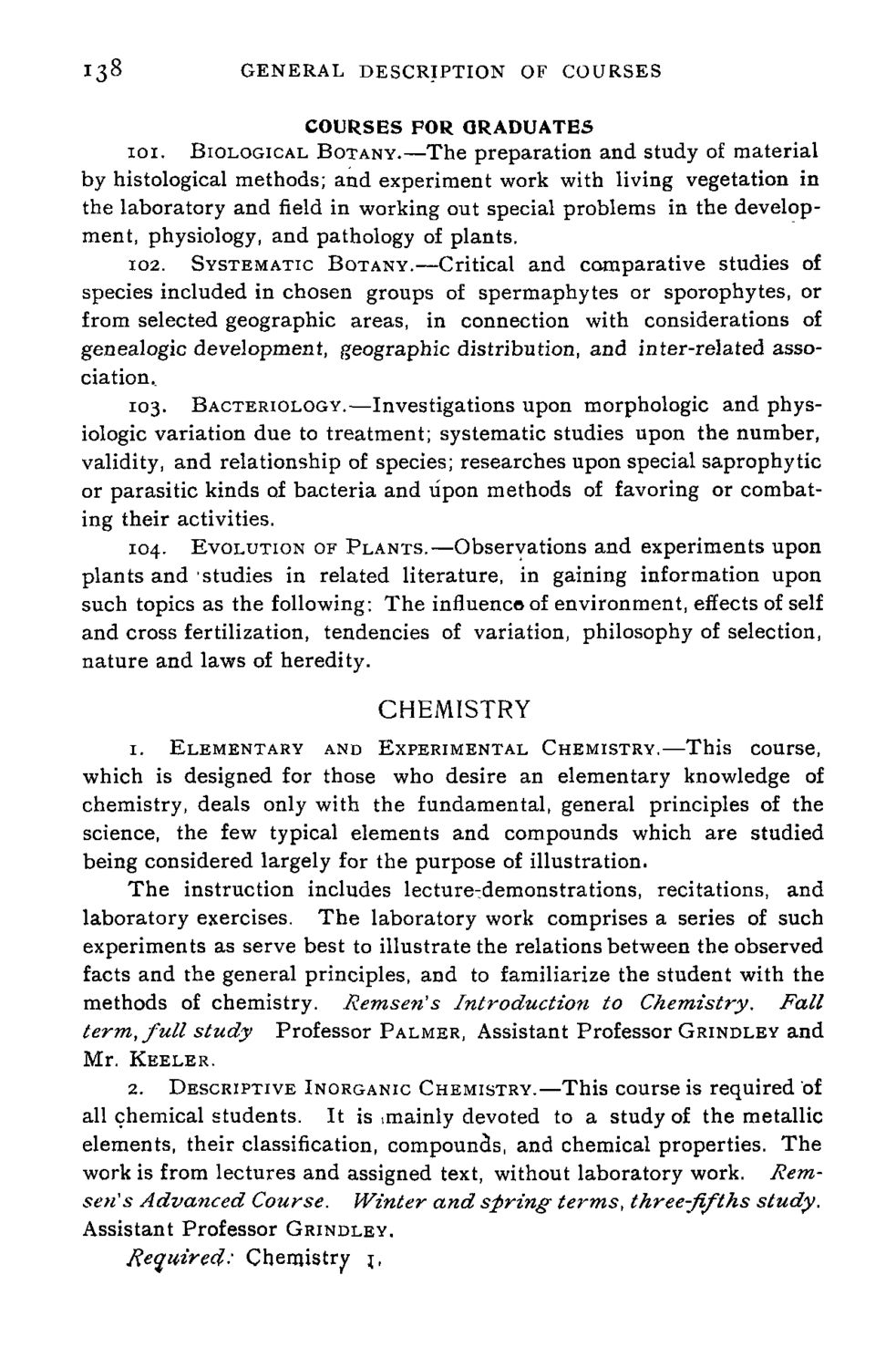| |
| |
Caption: Course Catalog - 1896-1897
This is a reduced-resolution page image for fast online browsing.

EXTRACTED TEXT FROM PAGE:
138 GENERAL DESCRIPTION OF COURSES COURSES FOR GRADUATES 101. BIOLOGICAL BOTANY.—The preparation and study of material by histological methods; and experiment work with living vegetation in the laboratory and field in working out special problems in the development, physiology, and pathology of plants. 102. SYSTEMATIC BOTANY.—Critical and comparative studies of species included in chosen groups of spermaphytes or sporophytes, or from selected geographic areas, in connection with considerations of genealogic development, geographic distribution, and inter-related association.. 103. BACTERIOLOGY.—Investigations upon morphologic and physiologic variation due to treatment; systematic studies upon the number, validity, and relationship of species; researches upon special saprophytic or parasitic kinds of bacteria and upon methods of favoring or combating their activities. 104. EVOLUTION OF PLANTS.—Observations and experiments upon plants and studies in related literature, in gaining information upon such topics as the following; The influence of environment, effects of self and cross fertilization, tendencies of variation, philosophy of selection, nature and laws of heredity. CHEMISTRY 1. ELEMENTARY AND EXPERIMENTAL CHEMISTRY.—This course, which is designed for those who desire an elementary knowledge of chemistry, deals only with the fundamental, general principles of the science, the few typical elements and compounds which are studied being considered largely for the purpose of illustration. The instruction includes lecturerdemonstrations, recitations, and laboratory exercises. The laboratory work comprises a series of such experiments as serve best to illustrate the relations between the observed facts and the general principles, and to familiarize the student with the methods of chemistry. Remsen's Introduction to Chemistry. Fall term, full study Professor PALMER, Assistant Professor GRINDLEY and Mr. KEELER. 2. DESCRIPTIVE INORGANIC CHEMISTRY.—This course is required of all chemical students. It is imainly devoted to a study of the metallic elements, their classification, compounds, and chemical properties. The work is from lectures and assigned text, without laboratory work. Remsen's Advanced Course. Winter and spring terms, three-fifths study. Assistant Professor GRINDLEY. Required: Chemistry j ,
| |